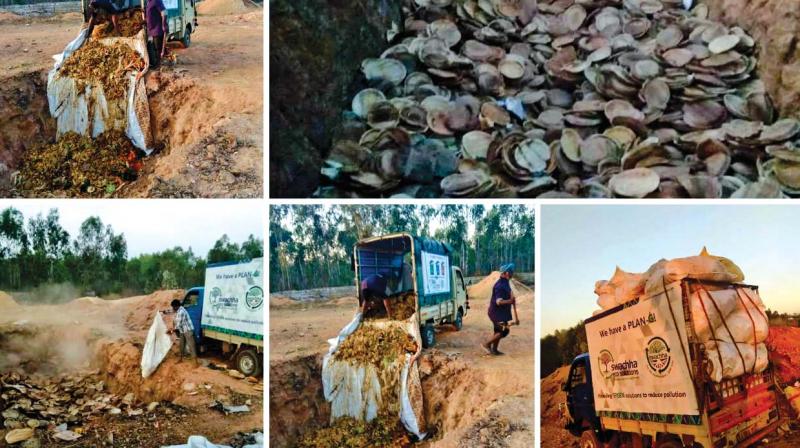Swachha: Working towards creating zero waste future'
Mr Rajesh Babu, co-founder of Swachha, said the NGO was born out of the objective to create a zero waste future'.

Bengaluru: Bengaluru, which was once called the ‘Garden City’, earned its infamous sobriquet ‘garbage city’ in 2012. Garbage crisis had reached its peak and heaps of uncleared waste was lying on the streets with villagers of Mandur refusing to accept Bengaluru’s garbage into their backyard anymore.
Only after this blow did the Bruhat Bengaluru Mahanagara Palike come up with the concept of segregation at source and composting santhes (fairs) in 2012. The civic body also banned single-use plastics in 2016 and have since been stressing on recycling waste, especially plastics. While the BBMP woke up to the crisis only in 2012, a Bengaluru-based NGO, Swachha Eco-Solutions, has been working quietly since 2008, stressing on segregation and converting discarded plastics into useful products, like farm-use irrigation pipes and tiles.
Mr Rajesh Babu, co-founder of Swachha, said the NGO was born out of the objective to create a ‘zero waste future’. “We were volunteering with the United Nations Environment Programme. Since then, our approach towards garbage took on a different dimension. Bengaluru on an average generates 3,500-4,000 tonnes of garbage every day and this increases during festive seasons,” he said, adding that managing such large amounts of garbage is a tedious process even if it segregated.
“Just segregation of garbage isn’t enough. What should one do with wet waste? We have built a ‘farmer linkage model’, where wet waste is converted into manure,” he said. “We have farmers around the city at Rajanagunte, Devanahalli, Kanakpura and Jigani. Segregated wet waste is handed over to farmers who convert it into compost on their land. The farmers share the compost in their neighbourhood,” he explained.
“While this is one way of reducing the burden on the landfills, plastic is another menace which we thought should address. Our NGO started working on making discarded plastics productive. After years of research, we came up with the concept of manufacturing tiles, irrigational pipes from the discarded plastics,” he said. Like the compost, irrigational pipes are again given to farmers at subsidised costs
“This closes one loop. We also have our product – re-tile, which can be used for pavements, walkways and even as wall claddings,” he said. Their unit can manufacture 10,000 tiles a day using around 4 tonnes of plastic.
Mr Ramprasad, a solid waste management expert and mentor of the project, said, “Recycling is the future. Large amounts of plastic waste have been ruining the environment and it is the duty of every sensible citizen to segregate it so that it becomes a raw material to the recycling industry.”
The tiles manufactured are anti-slippery, can resist heat up to 150 degrees Celsius and can bear up to 35 tonnes of weight, Mr Ramprasad said. Polythene bags, water bottles, milk covers, shampoo bottles, disposable food containers and spoons go into manufacturing the tiles.
The re-tiles are homogeneous and can be recycled again back into Re-tile or any other plastic materials, he said.

